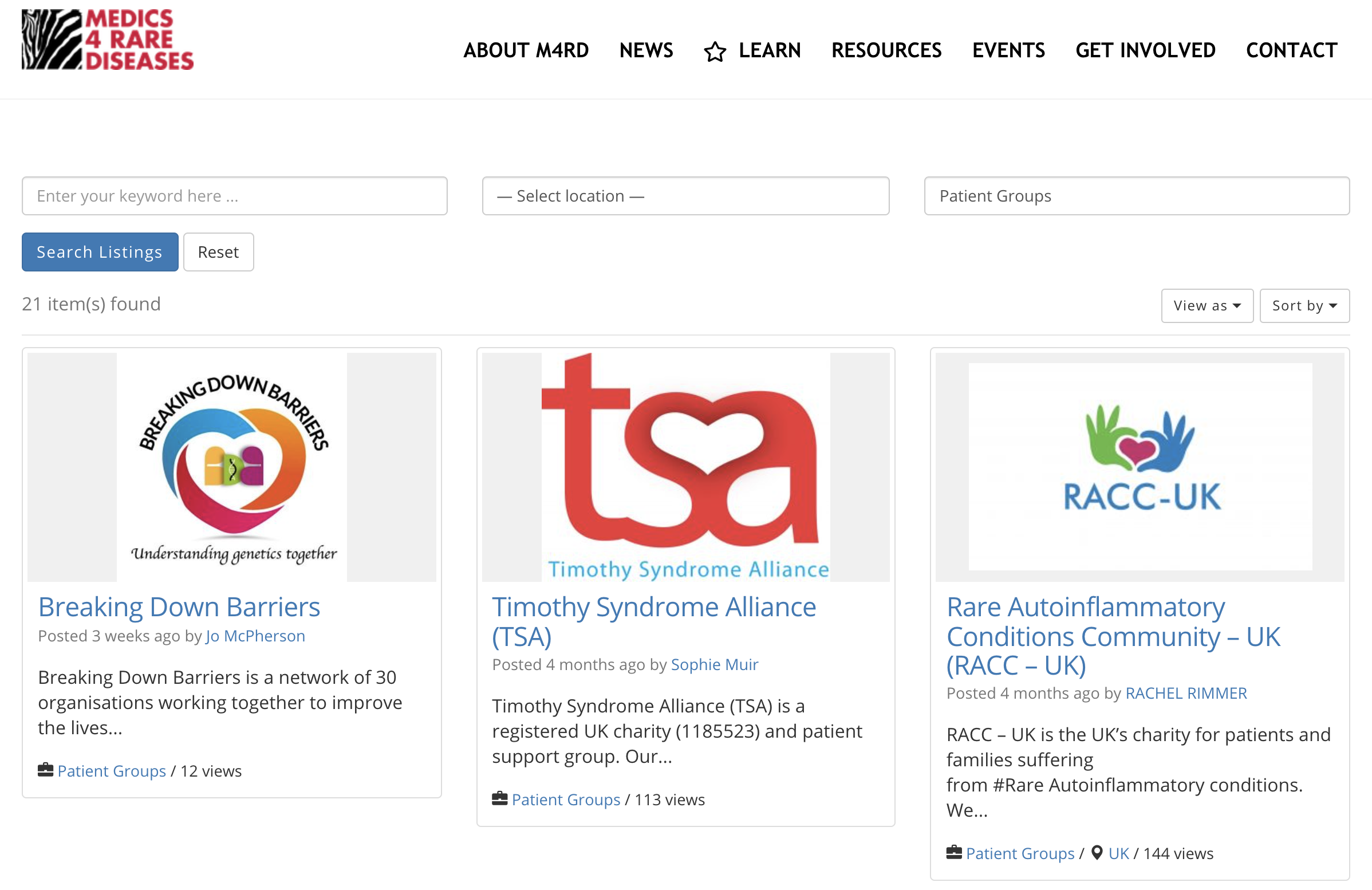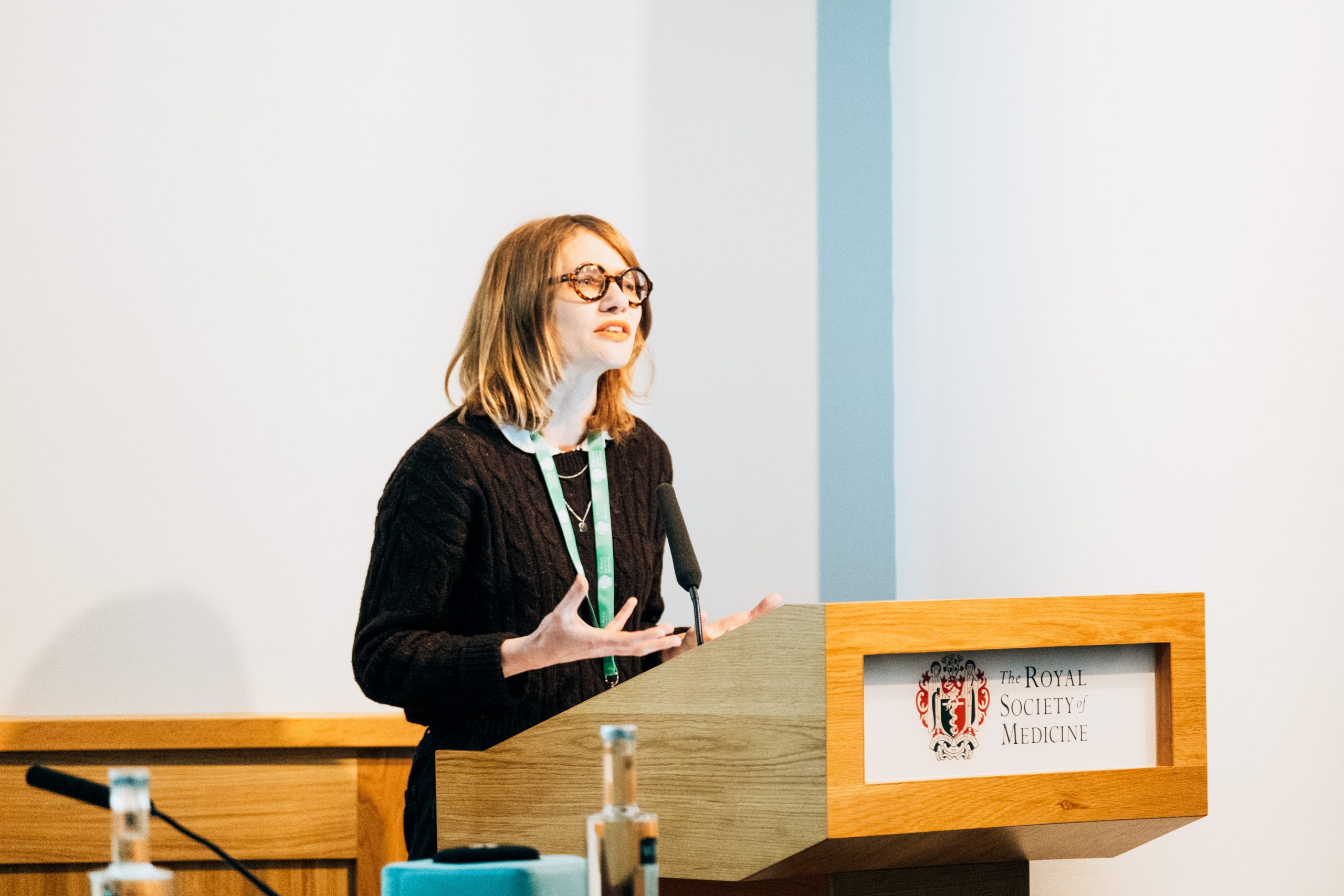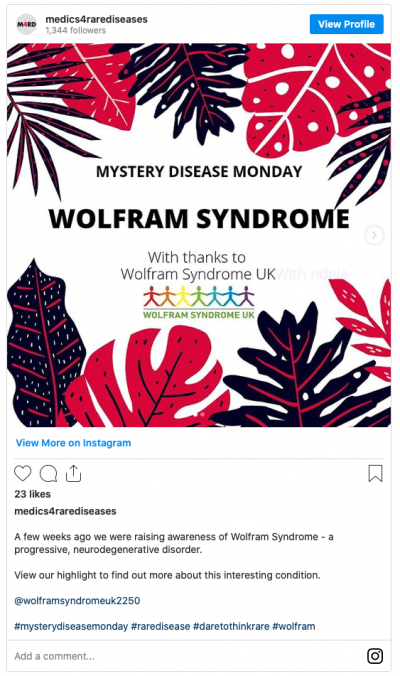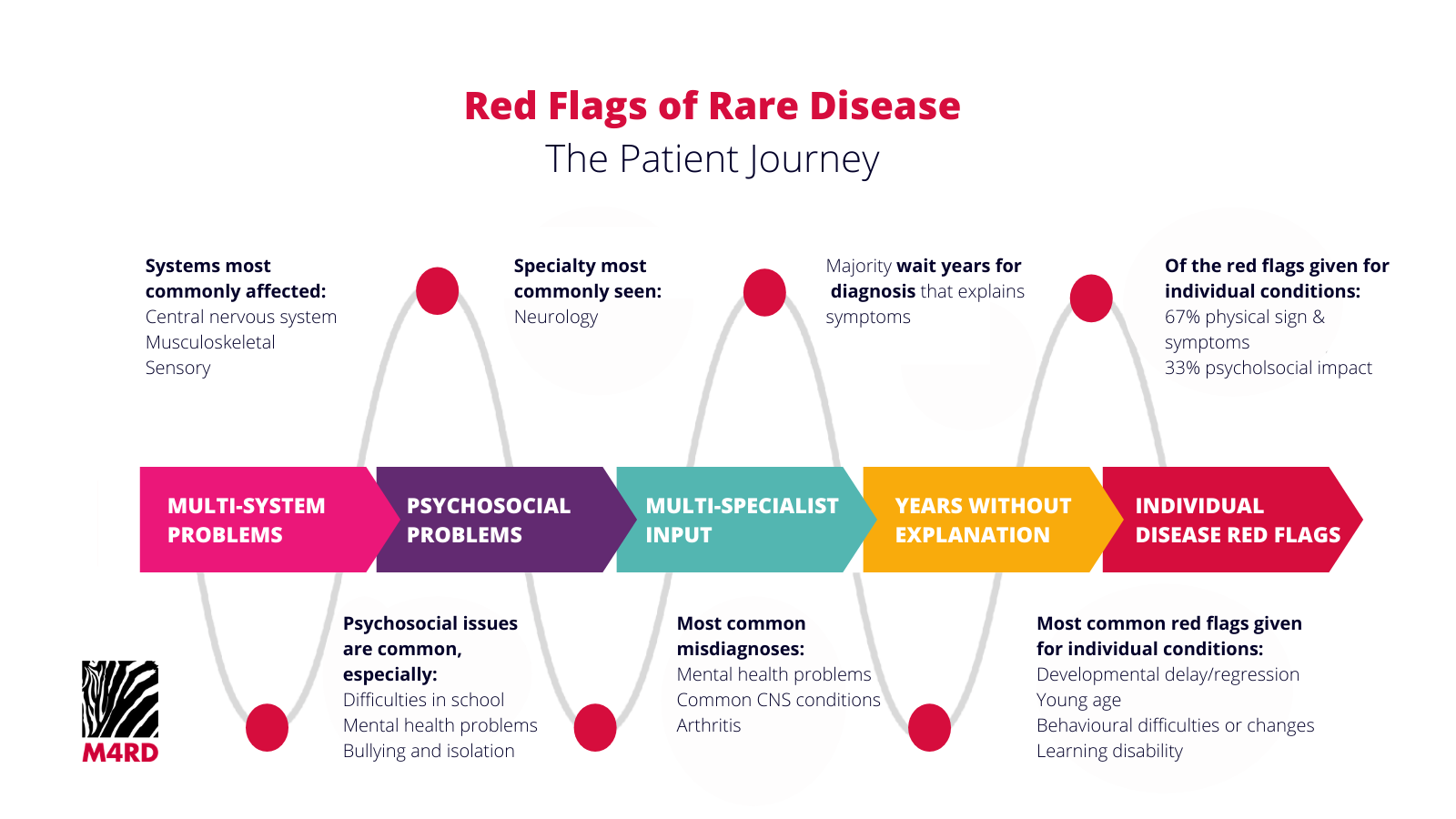Patient Advocacy Groups
Here’s how you can get involved
We believe that asking doctors to #daretothinkrare is fundamental to improving the experience of all rare disease patients and eliminating the diagnostic odyssey. Working closely with patients, patient advocates and patient advocacy groups to share our message is vital in enabling us to do this…
Become an M4RD Ambassador
If you like what we do and you want to spread the word more about rare diseases you can become an ambassador. Our Patient Ambassadors are really important for making sure that the patient voice is heard through our work – communicating the lived experience of having a rare disease is fundamental in our message to medical students and doctors in training.
Our ambassador programme is now CLOSED to new applicants and will re-open for Cohort 2025/26 in Summer 2025.
So how can we work together to share the ‘real’ patient experience?
We encourage patients and patient groups to share their stories and experiences either by writing their own blog or being interviewed by our CEO or one of our ambassadors. Articles on our news feed include: spinal muscular atrophy, CSID, small vessel vasculitis, ornithine transcarbamylase deficiency; spontaneous coronary artery dissection and kawasaki disease to name but a few! If you would like to contribute to our news posts, please read our guidelines and then get in touch with eleanor@m4rd.org
Our events area is a great place to promote your events that are suitable for a medical audience.

Use our online resources directory to promote your e-learning tools for healthcare professionals and share your videos.
Simply complete this form with all the details you would like to display on our website and we’ll do the rest.
Each year at our annual symposium ‘The Unusual Suspects: rare disease in everyday medicine’ we invite a patient/patient advocate to come along and educate our medical audience with their story and experience.
If this is something you would like to be considered for, please get in touch with jo@m4rd.org.
Our next event will take place on 15 February 2023.


#M4RDMysteryMonday is a great way for medics to learn about rare conditions from those who understand them the best – patients and patient groups.
We add bite-sized information to our Insta story throughout the day with posts that have a clinical focus, including information about: signs & symptoms; who’s affected; diagnosis and links to patient support groups. We can also link to websites and videos too!
If you’d like to raise awareness of your disease using #MMM all you need to do is provide us with the facts and images that you’d like us to share by completing this form and we’ll do the rest!
You can see previous examples of #MDM by viewing the highlights on our Instagram page.
(M4RD Mystery Monday is supported by Novartis. This support does not equate to endorsement of the company or its products. M4RD sponsors have no editorial control over content or activities.)
Rare Disease 101 would not be here without its authors, contributors and all of the rare disease community who are so generous with sharing their personal stories and expertise.
Our module includes or signposts to as many stories, examples, tools, websites, knowledge sources and images from the wonderful rare disease world.
If you would like to contribute to the development of existing or future lessons, do get in touch with lucy@m4rd.org.

When M4RD conducted its Red Flags Survey to find out what different rare diseases have in common during the time before diagnosis, we asked UK rare disease patient groups for a general collective picture of the average patient journey as far as possible.
In total, 81 different rare conditions are represented in the first part of the survey data analysis which is presented in our Red Flags Road Map.
We are hoping to publish our full findings in a medical journal later this year.
We are currently collaborating with Rare QoL to promote their #WhoseVoice campaign and have recently hosted a meeting with NHS England and NHS Improvement to help raise up the voices of underrepresented voices within the rare disease community.
Each year we work with Beacon on the Student Voice Prize. The patient group pairing scheme gives medical students, nurses and biological sciences undergraduates and masters students the chance to be paired with a rare disease patient group to learn first-hand about their condition and patient experience. The scheme benefits patient groups because it allows them to share their stories and experiences with a doctor, nurse or scientist of tomorrow who may never have considered working with rare disease before.
Other ways we have supported patient groups:
- We helped Bardet-Biedl Syndrome UK to find medical students to help develop a disease-specific patient registry
- We supported The CSF Leak Association to promote their bursary scheme to support a UK-based junior doctor in attending a symposium in LA in 2020
- In 2019 we worked closely with the Childhood Tumour Trust to search for a doctor to attend an international conference in San Francisco and to join their medical board as a volunteer medical advisor.
